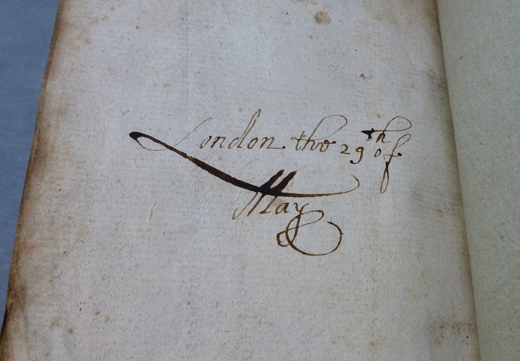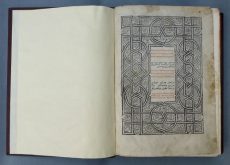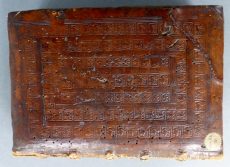- About
- Visiting
- What’s On
- Venue hire
- Catalogues
- Collections
- 101 Treasures of Chetham’s
- Digital Resources
- The Flowers of Histories
- A Book of Hours from France
- The Manchester Scrapbook
- Thomas Barritt of Manchester
- Art Treasures Examiner of 1857
- Manchester Association for Constitutional Order
- The North Western Museum of Science and Industry: Some Reminiscences by Richard Hills
- Criminal Manchester
- The Cup of Destiny
- Athenaeum Souvenir
- Middle English Manuscripts
- Manchester and Liverpool of Today
- Hollingworth’s Mancuniensis
- Memoir of Cecil Wray
- William Seward’s Diary
- The Anti-Monopolist
- Fishwick’s History of Rochdale
- Knyvett’s Defence of this Realm
- Tractatus de Nigromantia
- Axon Ballads
- Printed Books & Ephemera
- Archives & Manuscripts
- Prints and Photographs
- Blog
- Support us
William Tyndale’s New Testament
William Tyndale, The Newe Testament, diligently corrected and compared with the Greke, Printed in Antwerp, 1534
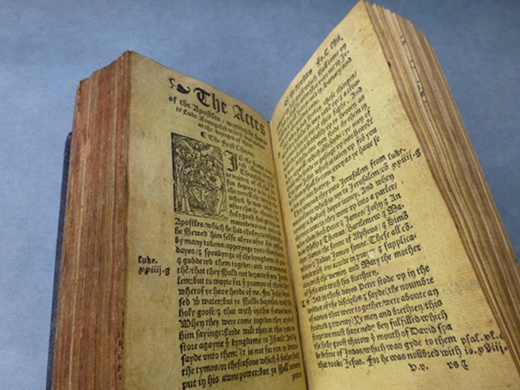
Tyndale’s New Testament has been described as ‘the most important book in the English Language’. As well as being the first printed edition of the Bible in English, it is the first English translation of the Bible drawn directly from the Hebrew and Greek texts.
The translation was made by William Tyndale (c. 1494-1536), a gifted linguist and leading figure in Protestant reform. He was greatly influenced by the work of Luther and Erasmus, and longed to see the Bible translated into the language of the English people, professing a desire for ‘the boy that driveth the plow’ to be as familiar with the scriptures as a clergyman.
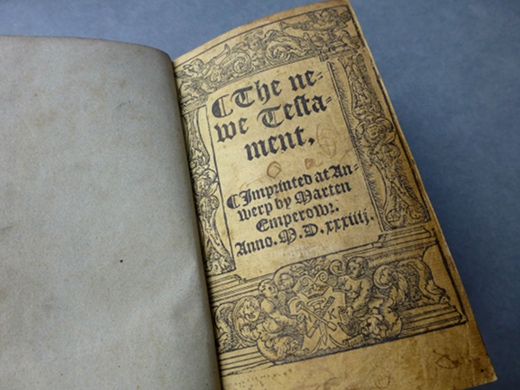
Despite this apparently noble aim, Tyndale was opposed by English law, which forbade the translation of the Bible into English. Church services were conducted in Latin, with the church assuming the position of mediator between God and man, and the idea of making the scriptures available to ordinary people was considered deeply subversive.
Tyndale was undaunted and left England to continue his work of translation. In 1526 the first edition of the New Testament was published in Worms and then later in Antwerp, and was smuggled into England and Scotland. In it, Tyndale challenged the hierarchies and structures of the church, replacing words such as ‘church’ with ‘congregation’, ‘penance’ with ‘repentance’ and ‘charity’ with ‘love’.
Tyndale was condemned as a heretic by Cardinal Wolsey, and in 1535 was imprisoned and later executed by strangulation and burnt at the stake, crying out as he died ‘Lord! Open the King of England’s eyes!’. Tyndale’s plea was heard and two years later Henry VIII authorised an English translation known as the ‘Great Bible’, which included much of Tyndale’s own translation.
Tyndale’s translation of the Bible was a significant influence on subsequent English translations, and at least three quarters of the King James Version is believed to be taken directly from Tyndale. The language of Tyndale has shaped and influenced the English language, and many of his words and phrases are still in regular use today, including ‘salt of the earth’, ‘signs of the times’, ‘apple of his eye’ and ‘blessed are the peacemakers’.
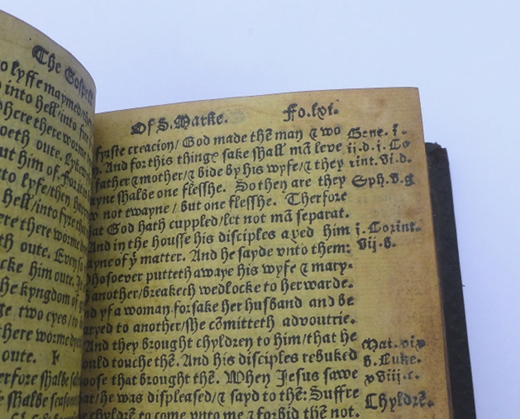
Our copy is the 1534 revision, which was made by Tyndale himself. It is printed, unusually, on yellow paper, an uncommon practice, the reasons for which are as yet not properly understood. The 1534 edition is the first instance of the use of the word ‘elder’ rather than ‘priest’. The rear fly-leaf verso carries the sixteenth-century inscription ‘London the 29th May’.
